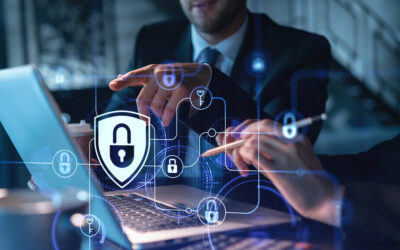Despite all that has gone on, many businesses have managed to stay open by embracing the remote capabilities of today’s technology. This is undeniably fortunate… however, it is crucial that we also acknowledge the importance of cybersecurity as these actions are taken.
As it happens, many business owners hold some preconceived notions as to which of their users constitute the biggest risks while working remotely. Let’s turn our attention to some statistics to see if these notions have any merit.
Cybersecurity in the Home Versus in the Office
Before we begin our review, it is important that we start off by acknowledging one thing: your employees probably aren’t used to subscribing to the same cybersecurity standards at home as they do in the office. While there will be exceptions, your team is generally going to be somewhat lax in their at-home security precautions.
This could easily cause remote work to become problematic. Consider it: when working remotely, your team isn’t operating within the protections installed on your business’ network. As a result, they could unwittingly allow in a threat and thereby give it access to whatever data or resources the individual responsible is privy to. Not only does this reinforce the importance of general access permissions, but it also makes it crucial that you encourage your employees to maintain high standards of security whenever and wherever attending to business matters.
According to a survey taken by the National Cyber Security Alliance, personal security standards are a mixed bag in more ways than one. Compiling the responses of 1000 American adults, with the sample split evenly between those aged 18 to 34 and those from 50 to 75 years of age, this survey helped to identify a few differences in behavior between these two cohorts.
The Survey’s Findings
Many of the insights that this survey presented were somewhat predictable. For instance, the younger cohort were more likely to put multi-factor authentication in place, 89 percent of respondents doing so compared to the elder cohort’s 70 percent. Similar numbers came up when it came to whether a user regularly applied software updates—83 percent of the younger group did, while 63 percent of the older group would.
Having said that, many of the data points generated through this survey told a much more two-sided story… one in which security practices were inconsistent across the board. While the younger cohort would more often use MFA, they would also neglect to update their basic security solutions, would connect to public Wi-Fi far more often, and didn’t reinforce their security when working remotely.
So, in this way, every age group can be a risk to cybersecurity while they work remotely… it just comes out in different ways.
How Does This Impact Your Business’ Security?
Here’s the hard truth: assuming that one group of users is inherently more or less secure than the other is a recipe for disaster, whether your team is working remotely or coming into the workplace each day. This means that your business’ security lies in your team’s awareness as a cohesive unit, which in turn means you need to do everything you can to keep them vigilant.
To do so, you need to clearly establish rules and procedures for everyone to follow as they’re working, wherever they happen to be at the time. Giving them different materials and exercises to use and evaluating their preparedness can help keep them accountable, as well as reveal to you where your potential vulnerabilities lie and what you need to do to resolve them.
If you need assistance with securing your team’s cybersecurity, reach out to our team here at Macatawa Technologies. With our help, your team can be secure whether they’re working in the office or at home. Call (616) 394-4940 to find out more today.





